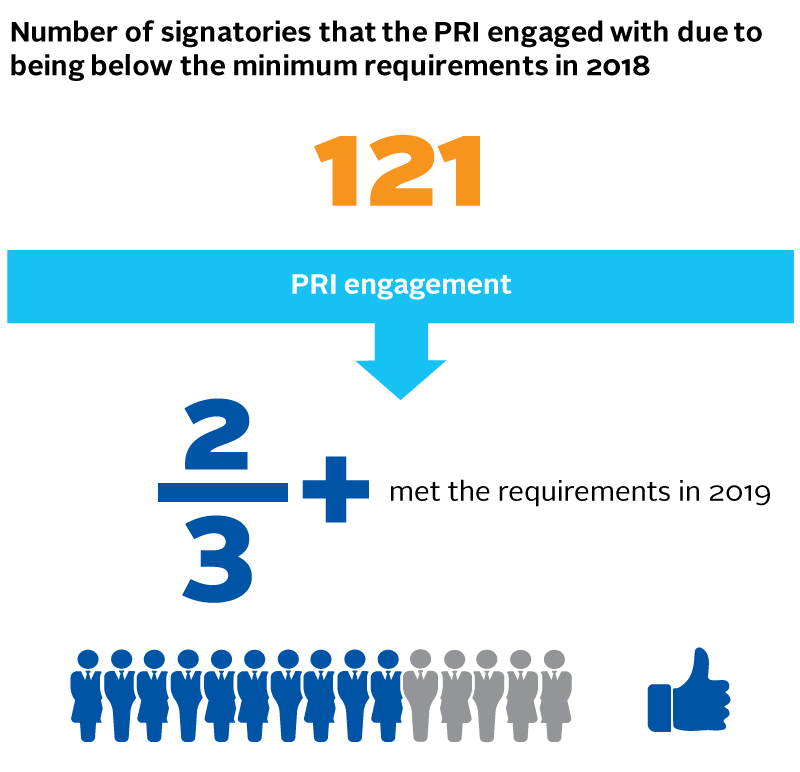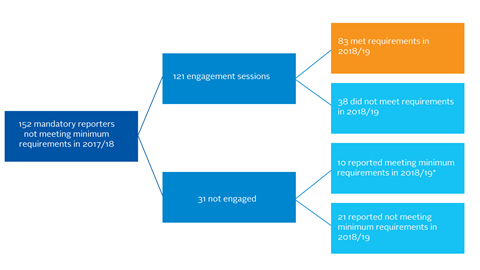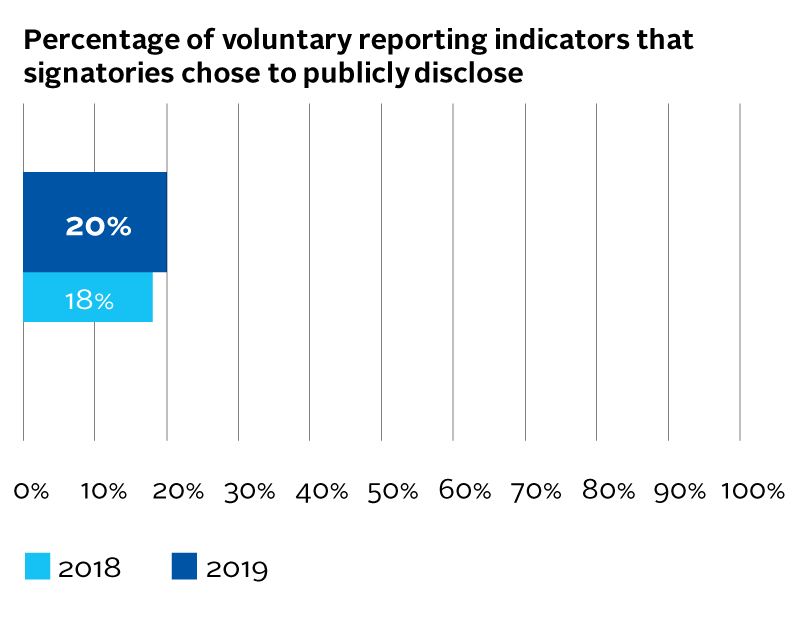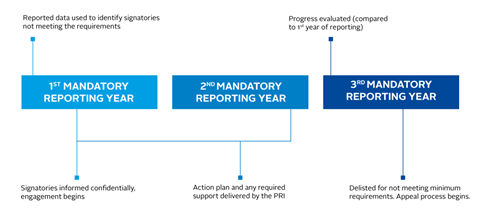A race to the top and a clear rulebook improve results
For signatory status to be meaningful, and for beneficiaries to see the benefits they are entitled to, we must ensure that signatories are living up to the commitments they make when signing up to the Principles. Ensuring that signatories are held accountable empowers us to recognise the leaders, and support those that are lagging behind.
Increasing accountability

Minimum requirements
Following growing calls from across the signatory base for more stringent measures, 2017/18 was the first year since we introduced minimum requirements for our investor signatories.
The new standards have been generally well received, both in principle from the signatory base as a whole, and in practice – as a useful mechanism through which to improve – from those that have needed support from the PRI to meet the standard required.
There are currently 69 signatories are on the watchlist for potential delisting.

With minimum requirements introduced for the 2017/18 reporting cycle, 2019/20 is the first occasion that signatories may be delisted for failing to meet the new standards.
Read more about PRI minimum requirements
Showcasing leadership
Leaders’ Group
This year we developed the criteria for our inaugural Leaders’ Group. The Leaders’ Group will showcase signatories at the cutting edge of responsible investment, using scores taken from signatories’ Assessment Reports to identify those that are leading the way on a specific aspect of responsible investment each year. It will be accompanied by a report sharing case studies of best practice.
- In 2019, the theme will be selection, appointment and monitoring of external managers.
- In 2020, the theme will be active ownership across asset classes.
- In 2021, the theme will be the SDGs and climate change.
Read more about the PRI Leaders’ Group
PRI Awards
We have also prepared the first ever PRI Awards. Where the Leaders’ Group will assess a signatories’ complete activity across that year’s theme, the PRI Awards will recognise individually excellent projects conducted by signatories of all sizes, specialisms and levels of development. They will be a great opportunity for all signatories to learn from each other’s successes. All the winning and shortlisted case studies will be published on the PRI website, along with commentary from the judging panel on what impressed them most about each project after evaluating them for innovation and impact.
Signatories have been invited to nominate projects across four categories: ESG incorporation, active ownership, ESG research and real-world impact. We will also present an award to the best project submitted by a signatory headquartered in an emerging market.
More than 100 nominations have been received, an independent panel of judges has been selected and the awards will be presented at PRI in Person in Paris in September 2019.
Read more about the PRI Awards

Voluntary disclosure
The willingness of signatories to disclose their responses to voluntary reporting questions is a useful indicator of how active signatories are in some of the more advanced practices covered by PRI reporting. Positively, the number has risen, although at 20% the overall proportion of voluntary indicators being disclosed remains low.
KEY TARGETS
Increase in the percentage of voluntary indicators that signatories chose to publicly disclose: 11%
(PRI target: 10%)
Reviewing the Reporting Framework
This year we started consulting signatories on a review of the Reporting Framework – the first wholesale review of the framework since its launch in 2012. The aim of the review is to ensure that PRI reporting and assessment is fit for purpose, remains relevant to evolving responsible investment practices and is useful for signatories and the responsible investment market as a whole.
The consultation started in February 2019 via surveys, workshops and webinars, and covers seven themes: reporting objectives; reporting outputs; assessment; learning and development; outcomes-based reporting and the SDGs; the wider ESG reporting landscape; and how to best support the reporting process.





